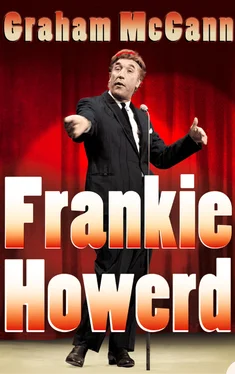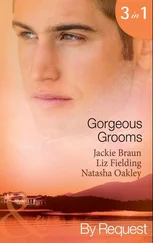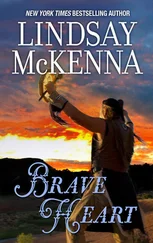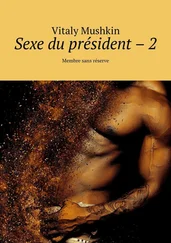To be fair to Dale, he did, through one means or another, get results. While Howerd was on tour, Dale called him with some extraordinarily exciting news: he had been sent an invitation, via the Jack Payne Organisation, from the producer Joy Russell-Smith (one of the most knowledgeable and perceptive judges of comic potential to be found in those days in British broadcasting) to audition for variety Bandbox , the top entertainment radio show on the BBC.
There has been, in the past, some confusion as to the timing of this call. Howerd would remember it arriving a mere âsix weeksâ into his professional career, which would have placed the date in mid-September. 43 It really happened, in fact, about three weeks after that.
Early on the morning of Wednesday 9 October 1946, Frankie Howerd travelled down to London and went straight to the BBCâs Aeolian Hall in New Bond Street. It was grey and damp outside, and it was grey and damp inside as well. He found himself in a large empty room with a battered microphone in one corner, a pile of sandbags strewn around all four of the walls, and a dull plate of glass that passed for an audience. He struggled to suppress a squeal of horror: it was, after all, yet another audition without anyone with whom to play, and the atmosphere could not have felt more flat. This, however, was an audition for the BBC, and the show it was for was Variety Bandbox , and so he took a deep breath and went ahead: âNow, Ladies and Gentle- men , I, ah, no â¦â
The act itself was something of a dogâs dinner: some of the material had been taken straight from For the Fun of It , some had been invented expressly for the occasion and some had been âborrowedâ from other comics and tailored to suit his needs. It was rough around the edges, the timing was slightly off, but the impact was still there. At the end of the performance, the studio door opened, Joy Russell-Smith emerged, stretched out a hand and congratulated Howerd with a remark that showed him just how well she understood what he had been up to: âA completely new art formâ. 44
The following day, Russell-Smith submitted her formal internal report:
FRANKIE HOWARD [sic] (Auditioned 9.10.46)
c/o Scruffy Dale.
Very funny, original patter and song.
Eric Spear and John Hooper present and agree. Seeded. 45
It was brief but immensely encouraging: this time, without the chance to interact with a âproperâ audience, Howerd had managed to win the approval of not only the redoubtable Russell-Smith but also Eric Spear (an experienced producer and composer who would later be responsible for, among other things, the theme tune of Coronation Street ) and John Hooper (another broadcaster with a sure sense of what it took to make any form of entertainment truly popular). As a consequence, he could now look forward to playing a part in the next, crucial, stage of the selection process â a recorded, âseededâ audition in the form of a private âshowâ before a special board of BBC producers. 46
Howerd duly returned to Studio 1 at Aeolian Hall on the morning of Friday, 25 October, nursing a bad migraine but otherwise feeling â for him â fairly hopeful. Rehearsals took place at 9 a.m., followed at 3.00 p.m. by the recording itself. He only had five minutes to show what he could do, but he enjoyed being back on a proper stage, playing to what was admittedly a very special, but none the less reassuringly audible, studio audience, and he left believing that he had acquitted himself rather well.
He was soon proven right. Just over a fortnight later, a telegram arrived: â YOU HAVE BEEN CHOSEN â. 47 His career in radio was about to begin.
CHAPTER 5
Variety Bandbox
Liss-en!
The average listener, perusing a copy of Radio Times at the end of November 1946, would not have known quite what to expect. It was obvious enough that this new man, Frankie Howerd, was probably going to be something rather special, because the magazine described him as âa comedian who is really different in that he doesnât tell a single gag!â It was not at all clear, however, what this difference would actually mean or amount to, because the magazine proceeded to reveal nothing more than the fact that Joy Russell-Smith âwouldnât let us into the secret of Frankie Howerdâs humour because it might take some of the surprise from the first showâ. 1
There was a real sense of anticipation, therefore, when, at 6 p.m. on Sunday 1 December, the latest edition of Variety Bandbox began on the BBCâs Light Programme. Topping the bill that week at the grandly cavernous Camberwell Palace was the very popular singer, dancer and actor Jessie Matthews, supported by novelty comic monologist Harry Hemsley, singers Hella Toros and Edward Reach, jazz violinist Stephane Grappelli, comedy double-act Johnnie Riscoe and Violet Terry, Morton Fraser âand his Harmonica Rascalsâ, and, right down at the bottom of the bill, the mysterious young debutant, Frankie Howerd.
Bottom of the bill he might have been, but Howerd could not have found a more high-profile British programme in which to make his broadcasting debut. Established in 1944, Variety Bandbox had soon become the radio show on which every popular entertainer in the country craved to be heard. âPresenting the people of Variety to a variety of people,â it was the most-listened-to programme of its type â overheard coming out from most of the houses in most of the streets in Britain each Sunday night, and discussed in countless workplaces each Monday morning. If ever there was an audition before the nation, then this, Howerd realised, was it.
As he readied himself in the wings before walking out to perform his first seven-minute spot, he thought of everyone who might be listening, somewhere, out there at home: certainly his devoted mother and his sister, and perhaps even his brother (although Sidney was never a great comedy fan) and innumerable other friends, acquaintances and relations; undoubtedly, from his agency and his touring company, Scruffy Dale, Jack Payne, Frank Barnard, Bill Lyon-Shaw, Nosmo King, Max Bygraves and Pam Denton would all be within hearing distance of the wireless; possibly, if the rumours that he had heard were right, such personal heroes as Jimmy James, Max Miller and Sid Field would also be tuning in; and, in addition to all of them, well, a frighteningly high proportion, it seemed, of the rest of the world and his wife. He felt nauseous â more so than usual â and his legs felt like lead, but, when the cue came, he puffed the air out from his mouth, clenched and unclenched his fists, took one last deep breath and then, with the help of a studio assistant, he pushed himself on to the stage to the sound of his new, aptly-titled signature tune: âYou Canât Have Everythingâ.
âLadies and Gentle- men ,â he began. They laughed. âNo ⦠Ah, no ⦠Now listen.â They laughed a little louder. âNo ⦠No, donât laugh â¦â They kept on laughing. âOh, no, um, no, please, liss-en â¦â He was off and running.
He did the usual routine, more or less, but this was the first time that it had been heard by the British public at large, and it went down extremely well. He seemed so new, so fresh, so ordinary, and, therefore, so odd. Instead of sounding like the 1,001st comic to come on and rattle off yet more of the same old gags â maybe a little faster, or slower, or louder, or quieter than the last one, but otherwise very much the same â Frankie Howerd lived up to his pre-publicity by coming over as a genuinely unusual comedian. He thought, at the end, that he had been âfar too twitchy to be goodâ, but he had been good enough to impress most of those who had been listening both in the theatre and gathered around the radio at home. 2
Читать дальше












